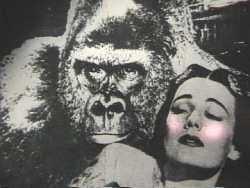Alexander Kluge
Biography
Writer, theorist, filmmaker, and television pioneer, Alexander Kluge is one of the intellectual giants of post-war Germany. Despite the scope of his achievements, his reputation in the United States rests largely on his contribution to the Oberhausen Manifesto, one of film history's seminal documents. In 1962, at the Oberhausen Film Festival, a group of twenty-six filmmakers, including future luminaries Wim Wenders, Werner Herzog, and Rainer Werner Fassbinder, signed a well-publicized declaration that "the old film is dead, we believe in the new," thereby kicking off the cinematic Golden Age now known as Das Neue Kino: "the New German Cinema."
Kluge is often seen as the group's intellectual father figure. Slightly older than the others, he had already trained as a lawyer and worked as an assistant to Fritz Lang. Perhaps more importantly, Kluge was the artist among them whose pursuit of the new most closely hewed to the revolutionary mandate; he consistently shunned commercial, narrative filmmaking, and employed political lobbying as well as avant-garde techniques. It may be that the calls-to-arms of the soixante-huitards were foreshadowed by the Manifesto's upstart rhetoric, but where many filmmakers saw May '68 as the culmination of this impulse, for Kluge it was only one event in a long, considered career of political and theoretical engagement.
Although he directed nearly thirty films in the following decades, Kluge's uncompromising politics and formal experimentation ensured that most of these critically celebrated works never reached a mass audience. Yesterday Girl (1965), his first and most typically Neue Kino film, remains the most widely known, but later works such as The Female Patriot (1979), which mixed fiction with fairy-tale animations and the voiceover of a soldier's amputated knee, were often judged overly oblique or abstract, even within the context of the art film.
In 1972 Kluge published Public Sphere and Experience: Toward an Analysis of the Bourgeois and Proletarian Public Sphere, the first of several collaborations with sociologist Oskar Negt. This book clarified his theoretical concerns, and signaled an increased interest in the social functions of media. By the mid-1980s he had more or less abandoned film, an arcane realm, in favor of television, which was cheaper to produce, reached a wider audience, and was potentially more democratic. With Negt, Kluge had argued that one must work within bourgeois social structures in order to effect change; now, finding little to his liking in the TV landscape, he founded his own production company, and struck bureaucratic arrangements that even today insure the inclusion of off-beat programming in which full editorial control is yielded to the directors.
Despite this groundbreaking work, it is his career as a fiction writer that has contributed most to his European renown. Although little-read in Britain and the United States, his writing has been as influential on German-language literature as that of Thomas Bernhard, Heiner Müller, or Peter Handke. As with his film and video work, Kluge's writing draws freely on documentary material, both real and invented, and incorporates interviews, diagrams and news photographs. Indeed, Frederic Jameson called one of these dense, hybrid fictive/philosophical books a "theoretical film." Kluge has treated media as a fluid field, one in which disciplinary boundaries are as questionable as the distinctions between high and low, individual and society, history and the present: all are texts up for renegotiation.
